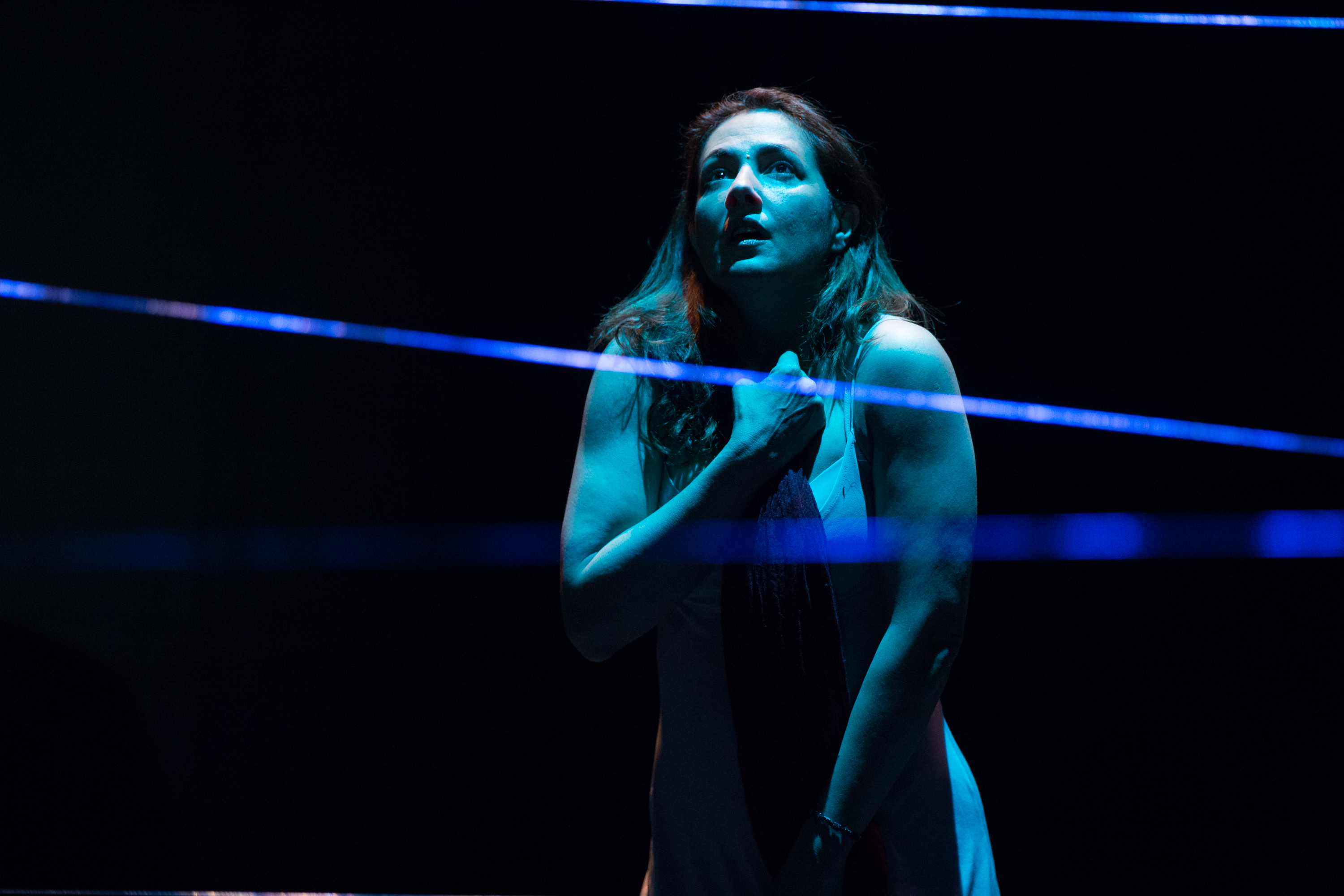
You have no home.
You have no address.
You are a refugee.
With those words we enter a dystopian universe, a black comedy in which the owner of a web page called e-refugee.com (played by Fehmi Karaaraslan), has a key role. With a dose of perverse joy, he calls himself the “big brother”, and has transformed people’s need to move from one place to another in search of a better life into a business, by owning (and knowing) all the information about the people involved.
His fetishistic relationship with this information and his insistence on capitalising on it, regardless of people’s situations or the conditions they have to pass through (a mother leaving her daughter behind in order to find a job, a refugee drowning at sea), makes him a certain embodiment of the role voyeurism plays in the capitalistic society.
He uses a video screen in order to show us the information he knows, making it a sort of a personal touch screen. The way video is used makes the act of intrusion on people’s lives a part of the space, in a way that brings it within touching distance of the viewers.
Three stories regarding three women from different countries – Guatemala, Vietnam and Syria – are shown through the video, and embodied by one single actor, Meltem Cumbul. Their being united both physically and linguistically (the whole play is in Turkish) serves not only as a supporting element of the story – in the end all three women get united by chance on a train to Istanbul, but also as a reminder of the universality of womanhood and humanity as a whole.
Since the acting technique is mainly physical in character, one of the most important elements of the play is the use of drums (played by Richard Dubelski). Not only do they create the atmosphere of a circus, in which the Big Brother’s other, exhibitionist side comes to light, but they also serve as a vehicle for putting the viewers in a sort of trance-like state.
It can be said that the play involves two climaxes – one concerning an individual nearly drowning at sea, and one involving society as a whole – showing footage of the destruction of historical sites in the Middle East by ISIS. If the events presented before the ISIS video were imaginable or probable, the influx of reality through the use of real footage most of the viewers have probably seen leads to the realisation that the dystopian reality presented in the play is quite near us or has already became a part of our lives.
Also, as the story develops, the Big Brother – initially an anonymous embodiment of perverse needs – becomes humanised by telling the story of himself being a refugee. It again serves as a reminder of the universality of human behaviour, just as it relativises the polarization of “the good” and “the bad”. Still, it remains a notion, not serving to deepen the character but to enhance its symbolic value.
The same thing can be said of the female characters: although their stories are not maybe a cliché of how refugees are being perceived in Turkey, their stories are certainly well known – a prostitute of Asian roots, or a woman whose husband stayed in the Middle East in order to protect his ideals. But, in the context of the universal character of the play, which tends to produce symbols and not to explore the depths of the characters, it can be said that the personal element of the stories is visible.
At a time when pathos is being chosen over satire, and humour, that by-product of free speech, is constantly targeted, it can be said that the author Sedef Ecer has written a daring and quite courageous work. If we cannot say that in this play the child named peace is born, it can certainly be said that with this play, the labour has begun.









